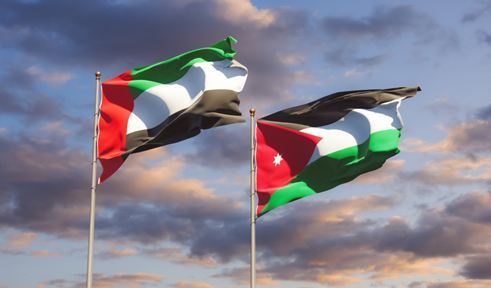Hamdi Tabbaa, President of the Jordanian Businessmen Association, stressed that the UAE is one of Jordan’s key economic partners and one of the largest investors in many vital sectors that contribute to national economic growth, including pharmaceuticals, agriculture, logistics, and energy.
He stated that UAE investments in Jordan are estimated at around $22.5 billion, and non-oil bilateral trade grew by 118% between 2019 and 2023. Jordan’s share of the UAE’s total non-oil trade with Arab countries reached 8%, making the UAE Jordan’s fifth-largest trading partner.
Tabbaa described the CEPA as a strategic step to enhance mutual investments and bilateral trade, including the implementation of a $5.5 billion package of investment projects. These projects support Jordan’s Economic Modernization Vision and include service, development, and infrastructure initiatives that aim to capitalize on available opportunities and foster sectoral integration—especially in areas impacted by regional geopolitical challenges.
He added that the agreement will open new avenues for long-term partnerships between business communities and the private sectors of both countries, fostering joint economic growth and job creation, particularly for Jordanian youth and SMEs. It will also reduce trade restrictions and create effective collaboration platforms that empower the next generation of entrepreneurs and innovators, ensuring inclusive benefits from economic gains. Tabbaa stressed the importance of active public-private sector cooperation to effectively implement the agreement, particularly in energy, mining, potash and phosphate production, and pharmaceuticals.
He underscored the importance of offering customs and tax exemptions to the UAE side to facilitate smooth implementation, in addition to enhancing information exchange to ease the import and entry of goods.
